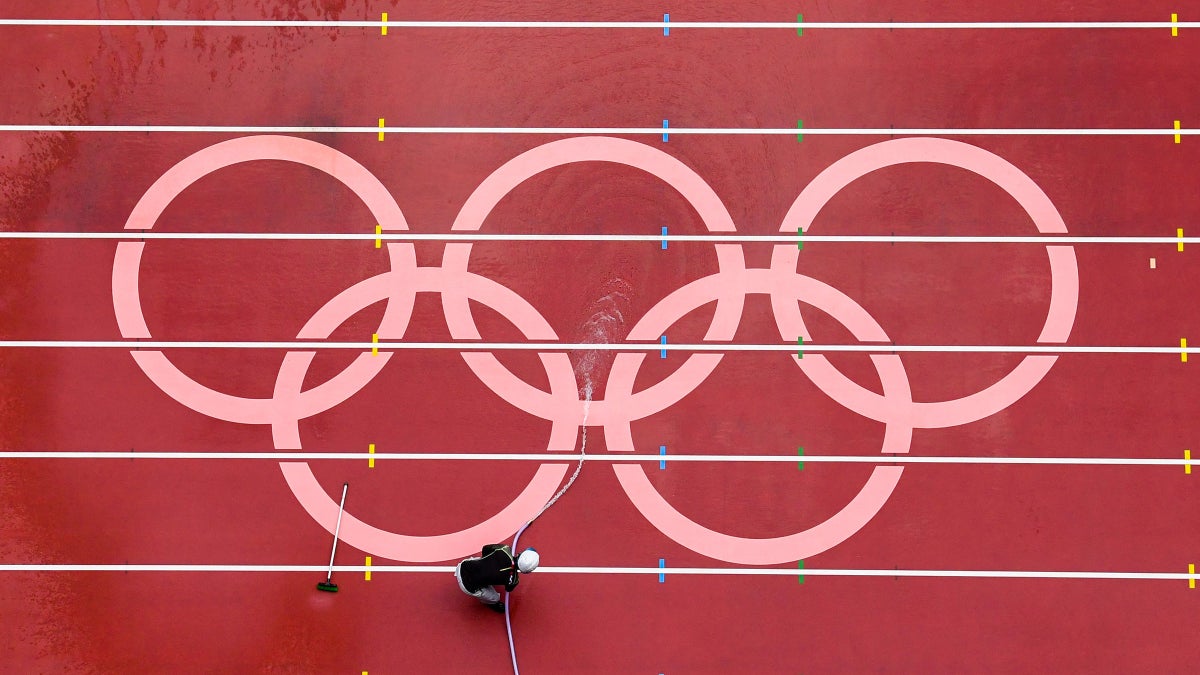No products in the cart.
Outdoor Adventure
The Irresistible Aura of the Olympics
Sixteen months after Tokyo 2020 was initially postponed, the pandemic Games have commenced. And, once again, I am reminded that one of the great, redeeming virtues of the Olympics is that they cause us to care about sports that we would otherwise only watch in response to a bribe or a threat. It’s been an unexpected joy to see Britain’s Adam Peaty, the sleeve-tatted, red-capped colossus, blast his way to a second consecutive Olympic gold in the 100-meter breaststroke. I’m half Austrian and confess there was a tingle of nationalist pride (which usually only surfaces during the Winter Games) when Anna Kiesenhofer, an unsponsored, self-coached mathematician, boldly ditched the peloton early in the women’s individual cycling road race and managed to hang on for the win—apparently because her fellow riders didn’t know that she was still in the race. I wish I could inject this stuff into my veins.
There is, of course, also a less inspiring side to the Games, one that is physically manifest in white elephant venues that fall into disrepair even as former host cities are still paying them off years later. Because of the COVID-induced spectator ban, Tokyo 2020 will have to endure the unfortunate irony of seeing its recently completed $1.4 billion Olympic Stadium sit empty while the Games are still taking place. That’s a new one. Indeed, while the Olympics will always have its critics, the ongoing pandemic—which appears to have already permeated the Athlete Village and forced medal-favorites to withdraw from competition—is guaranteed to make this year’s iteration even more contentious than usual. This week, Tokyo, which is officially in a state of emergency, announced its highest number of new COVID-19 cases at any point during the pandemic.
As others have written, there’s a certain cognitive dissonance with being enamored with the idea of the Olympics while being disillusioned with what often feels like a destructive institution. In the past, I’ve suggested that the best way forward might even be for athletes in flagship Olympic disciplines, like swimming and track and field, to collectively abandon the Games altogether in order to untether their respective sports from a system that only grants them mainstream relevance on a quadrennial basis.
Easier said than done. The five-ring aura is hard to resist, even for those who are hip to all of the International Olympic Committee’s malfeasance. Nonetheless, some upstarts are trying to loosen the Olympic stranglehold. Earlier this year, Alex Perry published a piece in Outside about the International Swimming League, a recent venture that is seeking to give pro swimmers more control over their financial destiny with an annual meet series. More radically, a Mark Cuban-backed enterprise called the World 1 League is attempting to reinvent traditional Olympic events like the 100 meters and the long jump for the social media era. The basic concept is similar to virtual racing, but with more emphasis on video and—horror of horrors—content creation; entrants must post their feats of athleticism on TikTok or Instagram for them to count.
Since I’m the type of person who, as a general rule, believes that social media makes everything worse, a parallel universe in which the World 1 League supplants the Olympics is a universe in which one grim reality has merely displaced another. But I am also not the target audience here. In a recent phone interview, World 1 League CEO Brett Morris told me that the idea was to match the Gen Z audience with “the need to create new revenue streams, new audiences, and new fans for these amazing Olympic athletes.” (Two-time Olympic gold medalist and noted galaxy brain Ashton Eaton is apparently a fan.)
For now, I’ll still be glued to my screen when the track and field portion of the Olympics kicks off on Friday. The men’s 10,000-meters is the first final and it’s a doozy, pitting Ethiopia’s furious kickers, Selemon Barega and Yomif Kejelcha, against Joshua Cheptegei and Jacob Kiplimo, the co-favorites from Uganda. It’s a showdown that would have me in thrall even if the venue were some meaningless, late summer meet in Europe. But while I personally don’t need any additional impetus to care about Friday’s 10,000, I know that the same Olympic energy that has me temporarily bewitched by the 100-meter breaststroke might inspire a normal person to sit through a 25-lap track race. It’s the Olympics, after all. How can we resist?

